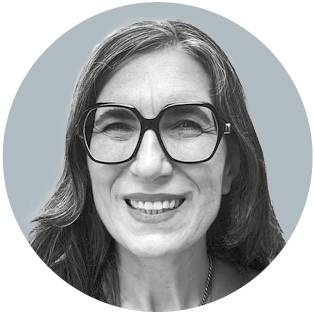German development agencies
Iván Égido's views on reform
In my view, it is very important for the international development cooperation to take into account continuously the limits of its incidence and action in each country. In other words, to know what the turning point is when a further increase of support and assistance will cause adverse effects.
Bolivia, for example, ten years ago was considered a country where institution building had worked and where the institutions were strong. However, looking a little closer it became clear that the State institutions were subsidised approximately 70 % by international cooperation.
This leads to the following question: When does development cooperation attend the needs of countries in order to move ahead for sustained development and when does it respond to its own needs to transmit their “proven” packages and formulas?
The answer apparently is encouraging, because it seems at least that development cooperation is rethinking itself and adapting to the new necessities and visions of development, in recent years with a focus on human rights.
In my opinion, German cooperation during the last years has changed from an interventionist scheme (transfer of knowledge and models which had been successful somewhere else) to a cooperative approach based on strengthening and supporting processes. For this reason, one speaks today about capacity development in priority sectors both of civil society as well as of public-state institutions.
Internationally, poverty has only been successfully fought where the private sector has thrived. How can and should a donor agency best support developing countries in this respect?
The private sector has been addressed by the different donor agencies in Bolivia for many years, with different focuses (agriculture, small and medium enterprises etc.). Today, the counterparts are middle and large entrepreneurs, but also associations of small producers, both with different priorities. The first focuses on support in the opening of new markets and the development of business with an approach of social responsibility, and the second group focuses on organisational development, the search for niche markets and support in improving quality and productivity.
Development cooperation has also supported institutional reforms in order to create conditions and incentives for private sector development.
However, the recent experience in Bolivia has demonstrated that for sustainable reforms it is necessary to put more emphasis on empowering civil society, in this case the private productive sectors and their associations. If they accompany and participate in the institutional macro reforms, it is more probable that they will defend the (market friendly) outcome of the reforms in case of government changes.
Thus, applying a “dual strategy” in international cooperation (to support civil society and public institutions at the same time) seems to be the most appropriate.
The German development cooperation with its different agencies (without those being part of a single structure) successfully apply this “dual strategy”. GTZ, for example, works with public institutions while the DED works with civil-society organisations. However, it is difficult for me to judge the degree of coordination between these institutions and whether they share the same principles and complement each other.
The Millennium Development Goals stress progress in specific sectors. How can and should a donor agency for technical cooperation best support developing countries in this respect?
One of the virtues of the agreement that allowed the definition of the Millennium Development Goals (MDGs) in September 2000 was the identification of common priorities to act more efficiently in the fight against poverty and environmental degradation.
Cooperation of developed countries in general and German cooperation in particular have been adapting their actions to these priorities. However, this does not necessarily mean that partner countries have the same priorities. International cooperation, therefore, should be much stricter in adapting its goals and action plans to the eight Millennium Development Goals. For this purpose, it would also be necessary to improve the monitoring of impacts and the indicators to measure progress.
In addition, the ability to coordinate actions among different agencies is still inadequate. Undoubtedly, this limited coordination is an impediment to achieving the MDGs by 2015 and end the vicious cycles of poverty.
The Paris Declaration and the Accra Agenda for Action stress the relevance of enhancing government capacities. How can and should a donor agency best support developing countries in this respect?
These two agreements, which aim at increasing the effectiveness of development aid, harmonisation and alignment of results, have two sides. These sides are related to what I mentioned above: the balance between support for civil society and state structures in the definition, participation and control of public policy.
Regarding alignment, for example, the leadership in designing and implementing the development strategy of the governments of recipient countries (ownership) should be accompanied by strengthening civil-society organisations. This prevents the approbation of policies that infringe the rights and/or interests of certain groups of civil society.
With respect to harmonisation, it is important to take into account the context in which development cooperation works in order to establish criteria for the sectoral and thematic division of work. For this purpose, we must recognise that there are own interests and priorities of the cooperating countries that are not transparent or openly socialised. Making these interests transparent would facilitate the understanding where and with whom harmonisation can work.
A related issue is the coincidence between the messages of each donor agency and their behaviour. For example, cooperation promotes policies and associated practices for an articulation of all levels of government and sectors of civil society, while their own behaviour towards their peers (other aid agencies) is different. Gender equity is another example: in inquiring about the number of women in leadership positions in all international cooperation agencies, the data given demonstrates an insignificant percentage.
Good and responsible governance have figured high on the development agenda ever since the World Bank’s World Development Report of 1997. How can and should a donor agency best support developing countries in this respect?
Good governance above all refers to principles and values. In this sense, it is important that an aid agency does not only concentrate on specific procedures or rules. Thus, on the one hand it is again important to work with the “dual strategy” mentioned above. On the other hand, transparency, participation, pluralism and sustainability, among others, should be the principles that are promoted in each of the counterparts to both agencies of civil society and the public sector. Finally, it is said that a government reflects its people.
The aforementioned focus on principles avoids replicating inadequate models and is more respectful for the diversity of contexts that exist in developing countries.
In regard to the past, what are strong points of GTZ, InWEnt and DED that you would want to last?
The GTZ has been characterised in the past, inter alia, by promoting participatory processes, planning methodologies with an orientation on results, knowledge transfer and technical assistance at different levels of government. DED on the other hand, has in the past been one of the most important promoters of participation and strengthening of civil society. Both institutions had and have different approaches and strategies.
The social capital acquired by the two institutions is supported by the affinities with their respective counterparts. A future merge of these institutions should consider these characteristics as a potential.
Little is known about the actions of InWEnt in Bolivia, thus unfortunately I can not speak properly about this agency.















